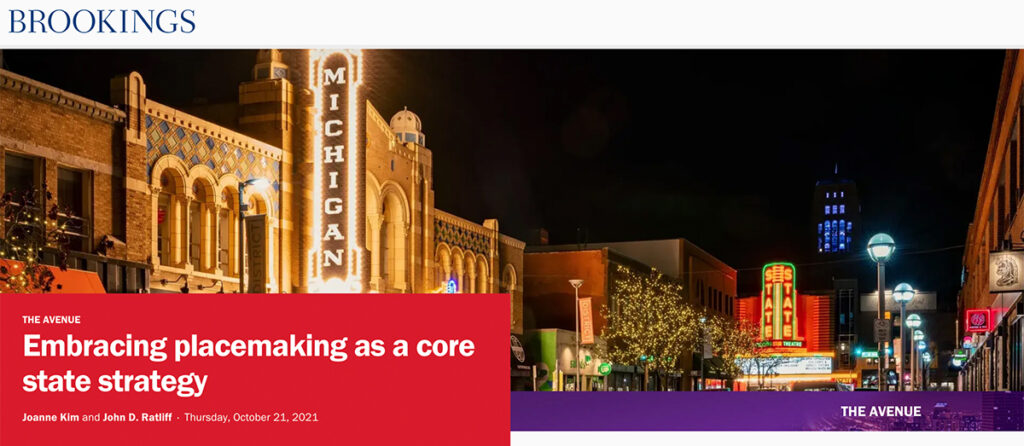
A recent article from the Brookings Institution — a nonprofit public policy organization based in Washington, D.C. — highlighted the State of Michigan’s approach to economic development. The article specifically identified the SmartZone program as one of the state’s major successes and cited Ann Arbor SPARK results as a data point. Additionally, reports from Dynamo Metrics — an Ann Arbor-based company and SPARK client — were featured throughout the story.

Excerpts from “Embracing placemaking as a core state strategy” by Joanne Kim and John D. Ratliff
While local governments, developers, and communities usually lead placemaking efforts, the state of Michigan stands out for its embrace of place-based policy as a key economic development strategy. The state’s motivation is clear — after globalization and technological change undermined the state’s core economic strengths, and the Great Recession sent the economy into a tailspin, the state needed a new set of community investment tools to accelerate its transition to the new, knowledge-based economy.
The results are promising: A recent Dynamo Metrics’ report on the Michigan Economic Development Corporation’s Community Development Incentives (CDI) programs found that its placemaking and place-based investments produced improvements in neighborhoods and commercial corridors by increasing occupancy rates and property values by $659 million in residential and $3.2 billion in commercial buildings from 2008 to 2019.
Michigan currently supports 20 SmartZones as connected, innovative economic ecosystems that are leveraging and empowering local assets, including local institutions, entrepreneurs, and residents. For instance, companies assisted by Ann Arbor SPARK, a non-profit intermediary in the Ann Arbor/Ypsilanti SmartZone, created 5,900 jobs and received $926.7 million in new investment between 2014 and 2019.